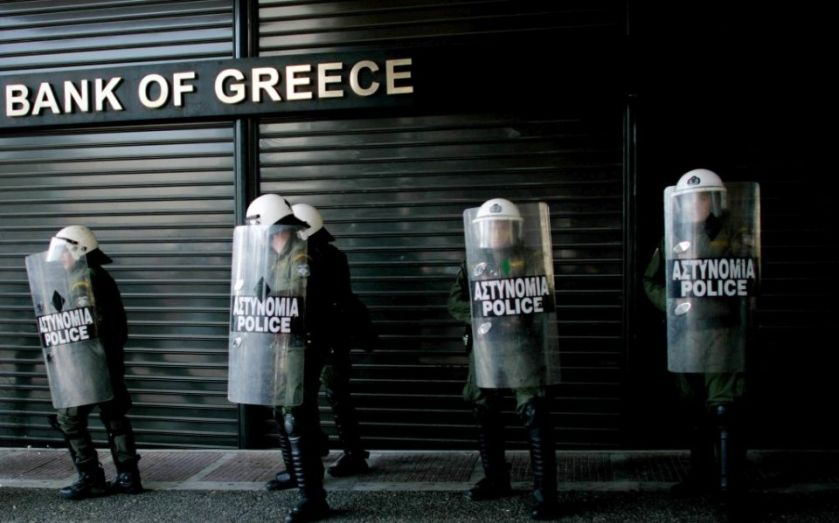Greek government balks at central bank’s Grexit warning

With time running out to avoid a Greek default, a stark warning from Greece’s central bank proved sharply divisive yesterday.
On the eve of a meeting of Eurozone finance ministers in Luxembourg, the Bank of Greece warned that the country risks a “painful” exit from the euro and even possibly the European Union if Athens and its creditors do not strike a swift cash-for-reforms deal.
The Greek government owes the IMF a €1.6bn payment, due at the end of this month.
The central bank also said that the country’s economic slowdown would accelerate without a deal, adding: “Striking an agreement with our partners is a historical imperative that we cannot afford to ignore.”
The comments drew strong reactions from the ruling Syriza party, which said yesterday that Bank of Greece Governor Yannis Stournaras, a former conservative finance minister, had exceeded his authority and was trying to set “asphyxiating” limits on the government.
In an interview with ITV last night, Greek finance minister Yanis Varoufakis accused Stournaras of “meddling.”
Q&A: If Greece goes bust, will it necessarily leave the Eurozone?
Q Why would a default lead to a so-called Grexit?
A The main reason why Greece is said to be at risk of leaving the Eurozone is because it would need to support its banking system.
Q Why would Greek banks need support?
A The banks have lent money to the government. If the state defaults, banks will be unable to fully repay depositors. Money has been flooding out of the banks for months on fears this could happen. They now have so little cash in reserve, that for every euro withdrawn, they must borrow an extra euro in reserves from the Bank of Greece, if allowed by the European Central Bank (ECB). If this emergency lending is removed, cash withdrawals and cross-border transactions would be limited.
Q When would this happen?
A This is likely to happen on one of two dates, on 1 July when Greece’s current bailout programme expires. If not then, it may happen on 20 July, when Greece is unlikely to be able to repay the €3.5bn it owes to the European Central Bank. But the ECB has also said that it will lend so long as there is a prospect of a deal, so the answer is not black-and-white.
Q Would this lead to a Grexit?
A With its own currency, Greece can lend to its own banks, and cash can be withdrawn to keep the economy moving. It could also insure people’s deposits. But it is feasible for Greece to remain in the Eurozone even if it defaults. The government would be forced to run a balanced budget – as no one would lend it money – and banks would have to limit cash withdrawals and international transactions.